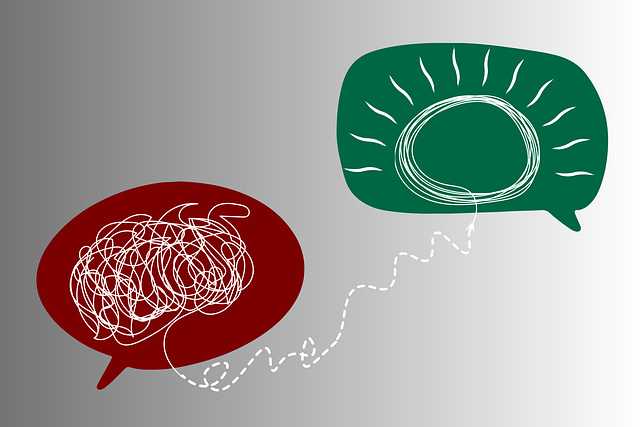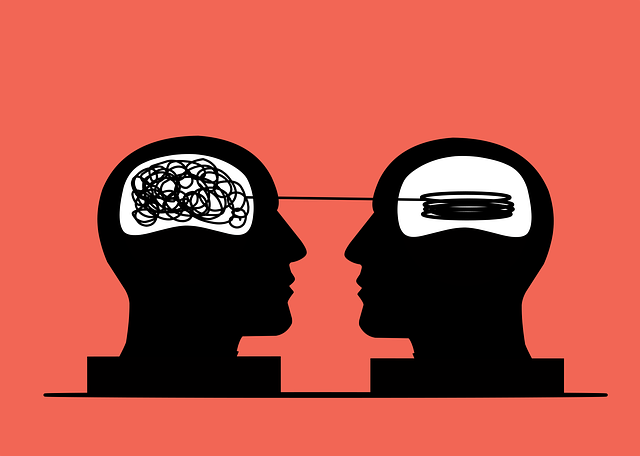Mental health advocacy is vital for men, addressing unique emotional well-being challenges obscured by societal norms and gender stereotypes. Organizations like Broomfield Mens Issues Therapy (BMIT) break down stigma through campaigns, education, and access to specialized services. BMIT combines individual counseling, group support, and community outreach to promote early intervention, healthy coping mechanisms, and emotional resilience. A strategic approach to mental health services for men involves partnering with healthcare providers, offering tailored training like Cultural Competency Training, and implementing Mental Wellness Coaching Programs for accessible remote support.
Mental health advocacy initiatives play a pivotal role in fostering well-being, especially among men who often face unique barriers to care. This article delves into the transformative power of advocacy, exploring its profound impact on men’s mental health through case studies and strategic insights. We spotlight Broomfield Mens Issues Therapy as an exemplary model, demonstrating effective advocacy practices. Furthermore, we provide actionable strategies to expand these initiatives, addressing the persistent mental health challenges faced by men in our communities.
- Understanding Mental Health Advocacy and its Impact on Men's Well-being
- Broomfield Mens Issues Therapy: A Case Study in Effective Advocacy
- Strategies for Expanding Mental Health Advocacy Initiatives
Understanding Mental Health Advocacy and its Impact on Men's Well-being

Mental health advocacy plays a pivotal role in addressing the unique challenges men often face when it comes to their emotional well-being. In many cases, societal norms and gender stereotypes have led to barriers preventing men from openly discussing or seeking help for mental health issues. Mental Health Advocacy initiatives work tirelessly to challenge these norms, breaking down the stigma surrounding male emotional vulnerability.
These advocacy groups provide a platform for men to share their experiences, fostering an environment of understanding and support. Through awareness campaigns, educational programs, and access to specialized services like Broomfield Mens Issues Therapy, they empower individuals to prioritize their mental health. The goal is to encourage early intervention and promote healthy coping mechanisms, ultimately leading to improved emotional resilience and a sense of confidence boosting strategies that address anxiety relief and support emotional healing processes.
Broomfield Mens Issues Therapy: A Case Study in Effective Advocacy

Broomfield Mens Issues Therapy (BMIT) stands out as a powerful example of effective mental health advocacy. Founded with the specific goal of addressing men’s unique mental health challenges, BMIT has pioneered innovative approaches in therapy delivery. Their tailored programs focus on issues often overlooked or stigmatized within traditional mental health services, such as masculine identity crises and emotional expression difficulties.
Through a combination of individual counseling, group support sessions, and community outreach, BMIT successfully promotes mental wellness and emotional well-being among men. The program’s success lies in its Mental Health Education Programs Design, which empowers participants with coping strategies and fosters open discussions about mental health. By challenging societal norms and providing safe spaces for expression, BMIT exemplifies effective advocacy, contributing significantly to the broader movement of Emotional Well-being Promotion Techniques.
Strategies for Expanding Mental Health Advocacy Initiatives

Expanding mental health advocacy initiatives requires a multi-faceted approach to ensure comprehensive support for individuals seeking help. One effective strategy is to partner with local healthcare providers and offer specialized training, such as Cultural Competency Training, tailored to address the unique needs of men. This initiative can improve access to care by fostering an environment where male patients feel understood and supported.
Additionally, developing Mental Wellness Coaching Programs can empower individuals to take a proactive role in managing their mental health. These programs should be accessible and inclusive, leveraging technology for remote support, especially beneficial for those facing barriers like transportation or social anxiety. Integrating these strategies, as seen in Broomfield Mens Issues Therapy, can lead to significant improvements in mental wellness within the community.
Mental health advocacy plays a pivotal role in fostering well-being, especially among men. As highlighted by the case study of Broomfield Men’s Issues Therapy, targeted initiatives can significantly improve access to support and treatment. By adopting strategies that involve community engagement, breaking down stigma, and integrating diverse therapies, we can create a more inclusive and supportive environment for mental health care. Expanding these advocacy efforts is crucial to ensuring that men across various communities receive the necessary tools to navigate and overcome mental health challenges.













